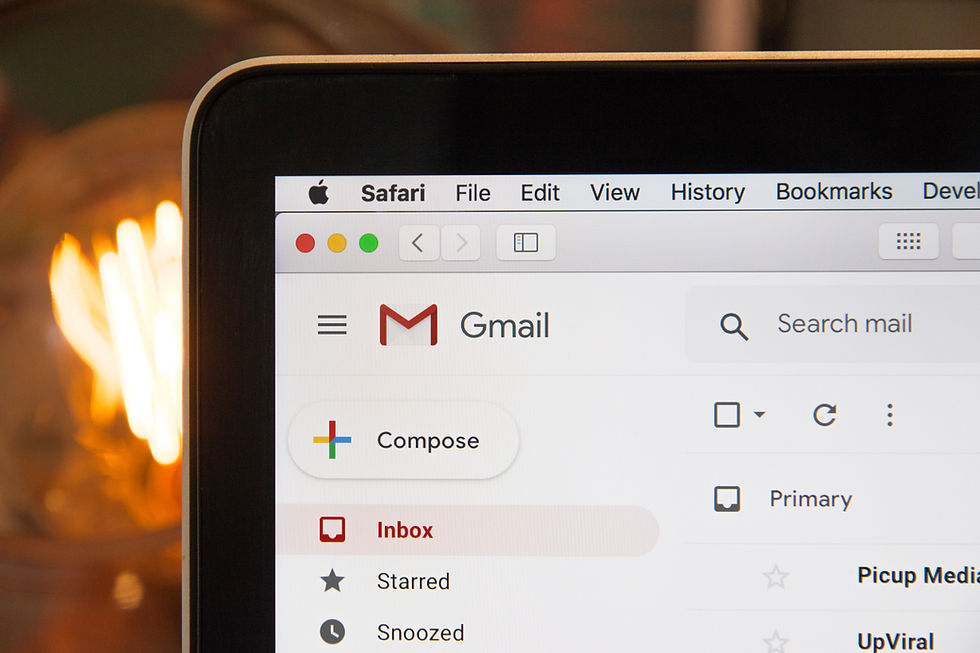Navigating the Literary Seas: Crafting the Perfect Query Letter
- Devin Joubert
- Nov 30, 2023
- 3 min read
Aspiring authors venturing into the realm of publishing find themselves at a crossroads where the art of the query letter meets the digital age. In this blog post, we'll delve into the nuances of crafting a compelling query letter while adapting to the evolving landscape of digital submissions. Additionally, we'll explore the famed "slush piles" and how to stand out in the crowded sea of submissions.
The Digital Shift:
1. Submission Methods: Email vs. Snail Mail
In the digital age, many publishers have shifted away from traditional mail submissions. Instead, they prefer receiving queries via email. It's crucial to research each agent or publisher's preference and follow their specified guidelines for electronic submissions.
2. Email Etiquette: Professionalism is Key
Craft a professional email subject line that encapsulates the essence of your query. Ensure your email address is reputable and reflects your authorial identity. Follow the same etiquette as you would with a physical submission.
3. Attachments and Formatting: Streamlined and Cohesive
If the agent or publisher requests attachments, ensure they are in the specified format (e.g., PDF) and that your document is well-formatted. Maintain consistency in font and style for a polished presentation.

The Slush Piles:
1. Understanding Slush Piles: The Gateway to Discovery
The term "slush pile" refers to the mass of unsolicited manuscripts and query letters that flood an agent or publisher's inbox. It's the gateway where gems are discovered, but standing out in this avalanche requires finesse.
2. Crafting a Standout Query: Rise Above the Slush
Grab attention from the start with a compelling hook. Agents and editors often sift through numerous queries, so make yours memorable. Be clear, concise, and impactful to stand out in the slush pile.
3. Patience and Persistence: Navigating the Waters
Understand that the slush pile is part of the literary process. Rejections may come, but they are not the end. Learn from feedback, revise, and persist. Literary success often requires navigating through multiple submissions.

Dos and Don'ts:
Dos:
- Do adhere to submission guidelines, especially regarding digital formats.
- Do include a clear and concise subject line in your email.
- Do research each agent or publisher's preferred submission method.
- Do maintain a professional tone in your email correspondence.
Don'ts:
- Don't send unsolicited attachments if not specified in submission guidelines.
- Don't neglect to proofread your email for professionalism and clarity.
- Don't be discouraged by the digital slush pile; use it as an opportunity to refine.
A note about fiction and nonfiction query letters:

Query Letter Samples:
Sample Query Letter for a Fictional Book:
[Your Name]
[Your Address]
[City, State, ZIP Code]
[Email Address]
[Phone Number]
[Date]
[Agent's Name]
[Agency Name]
[Agency Address]
[City, State, ZIP Code]
Dear [Agent's Name],
I hope this letter finds you well. I am writing to you because of your exceptional reputation for representing [specific genre or theme] novels, and I believe my manuscript, [Book Title], might be a great fit for your list.
[Opening Hook: Begin with an engaging hook that captures the essence of your novel.]
[Book Details: Provide a concise synopsis of your novel, including main characters, central conflict, and stakes.]
[Author Bio: Highlight relevant information about yourself, emphasizing any writing credentials or personal experiences that connect to the novel.]
[Comparative Titles: Mention a few existing books that are similar to yours, showcasing where your work fits in the market.]
I have attached [number] pages of the manuscript, as per your submission guidelines. [Optional: If the manuscript is complete, you can mention that it is available upon request.]
Thank you very much for considering my submission. I am excited about the possibility of working with you and look forward to the opportunity to discuss [Book Title] further.
Sincerely,
[Your Full Name]
[Your Signature for a Physical Letter]
Sample Query Letter for a Nonfictional Book:
[Your Name]
[Your Address]
[City, State, ZIP Code]
[Email Address]
[Phone Number]
[Date]
[Agent's Name]
[Agency Name]
[Agency Address]
[City, State, ZIP Code]
Dear [Agent's Name],
I trust this letter finds you in good spirits. I am reaching out to you because of your impressive track record in representing insightful and thought-provoking nonfiction works. I believe my book, [Book Title], aligns with your interests.
[Opening Hook: Start with a compelling introduction that highlights the significance of your nonfiction book.]
[Book Details: Provide a concise overview of your nonfiction book, emphasizing its unique perspective, purpose, and potential impact.]
[Author Bio: Share relevant details about your background, expertise, or personal connection to the subject matter, establishing your credibility as the author.]
[Comparative Titles: Reference other successful nonfiction books that share similarities with yours, demonstrating your awareness of the market and your book's place within it.]
I have included [number] sample pages with this query, and the complete manuscript is available upon request.
Thank you for considering my submission. I am eager to discuss [Book Title] with you further and explore the possibility of working together.
Warm regards,
[Your Full Name]
[Your Signature for a Physical Letter]
.png)

Comments